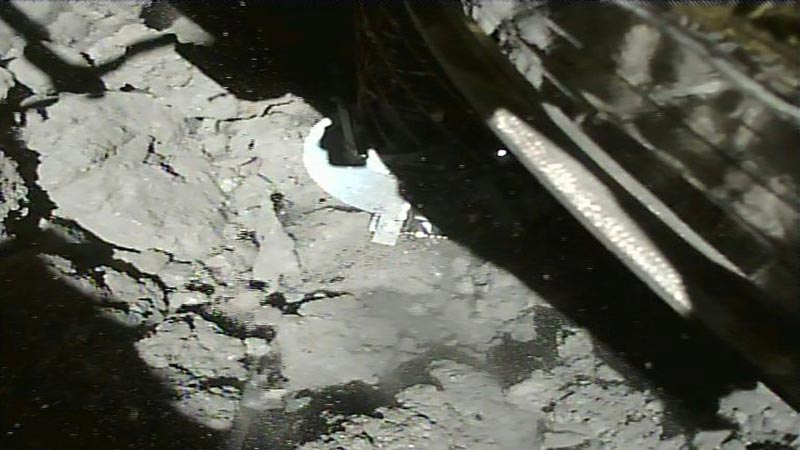The voyage home: Japan’s Hayabusa-2 probe to head for Earth


The long voyage home would begin at 10:05 am (0105 GMT), with the probe expected to drop off its precious samples some time late 2020, the Japan Aerospace Exploration Agency (JAXA) said.
“We expect Hayabusa-2 will provide new scientific knowledge to us,” project manager Yuichi Tsuda told reporters. The probe will bring back to Earth “carbon and organic matter” that will provide data as to “how the matter is scattered around the Solar System, why it exists on the asteroid and how it is related to Earth,” added Tsuda.
The mission took the fridge-sized probe some 300 million kilometres (186 million miles) from Earth, where it explored the asteroid Ryugu, whose name means “Dragon Palace” in Japanese — a reference to a castle at the bottom of the ocean in an ancient fable.
In April, Hayabusa-2 fired an “impactor” into the asteroid to stir up materials that had not previously been exposed to the atmosphere.
It then made a “perfect” touchdown on the surface of the asteroid to collect the samples that scientists hope will provide clues into what the Solar System was like at its birth some 4.6 billion years ago. “I’m feeling half-sad, half-determined to do our best to get the probe home,” said Tsuda.
“Ryugu has been at the heart of our everyday life for the past year and a half,” he added.
‘New destination’
Hayabusa-2 will receive its orders to head for home on Wednesday, break free of the asteroid’s gravity on November 18 and fire its main engines early next month en route to Earth, JAXA said.
Tsuda said the six-year mission, which had a price tag of around 30 billion yen ($278 million), had exceeded expectations but admitted his team had to overcome a host of technical problems.
It took the probe three-and-a-half years to get to the asteroid but the return journey should be significantly shorter because Earth and Ryugu will be much closer due to their current positions.
Hayabusa-2 is expected to drop the samples off in the South Australian desert, but JAXA is negotiating with the Australian government about how to arrange it, Tsuda said.
The probe is the successor to JAXA’s first asteroid explorer “Hayabusa”, which means falcon in Japanese.
Leave a Comment